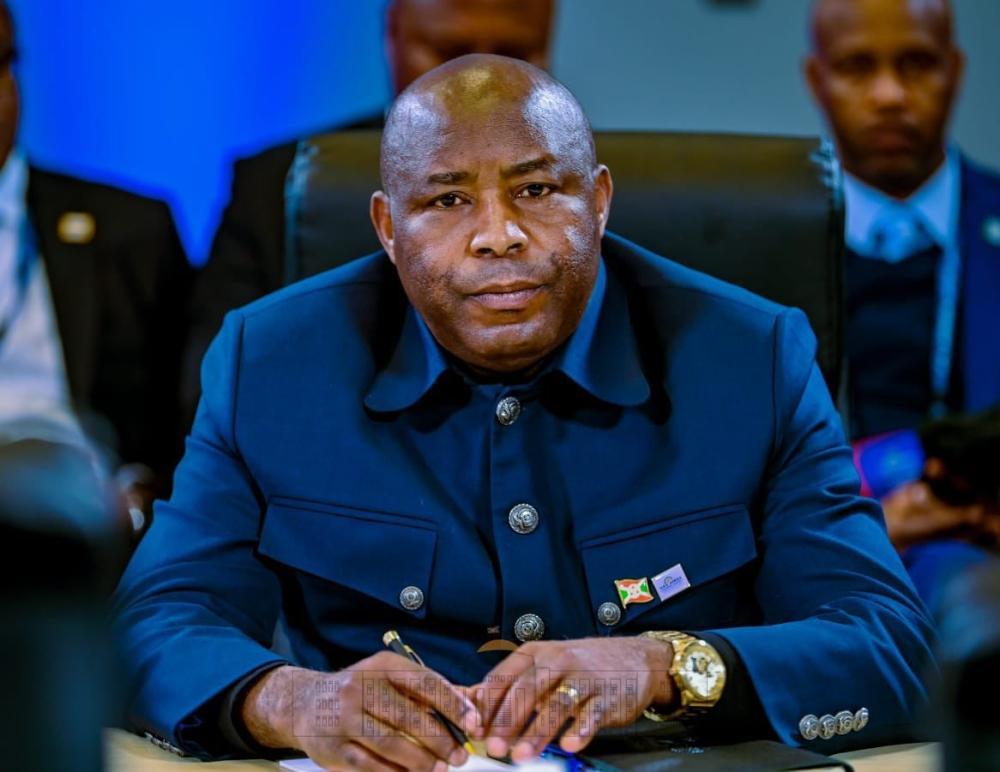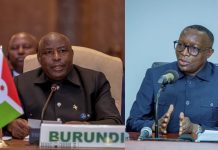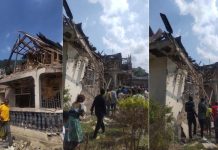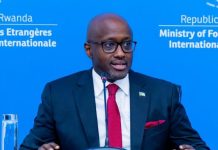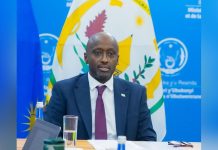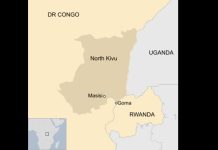Shyaka Kanuma
Africa-Press – Rwanda. Recent belligerent pronouncements against Rwanda by Burundian president Evariste Ndayishimiye in Kinshasa, where he had gone to attend the swearing in ceremony of President Felix Tshisekedi, leave one wondering: first of all (before considering other implications of the things he said) when did such behavior, coming from heads of state, become normalized?
And when did it cease being a grave breach of decorum for the president of one country to loudly, and publicly, declare intentions to overthrow the government of another?
Yet there the Burundian president was, in a hall in Kinshasa, pledging “to join the efforts of his Congolese counterpart to overthrow the Rwandan government.” And thus, Ndayishimiye became one with Tshisekedi in torching interstate harmony, and scattering good neighborliness to the four winds.
To watchers of events, it is hardly surprising that the Burundian president has aligned himself with Tshisekedi in the latter’s hostile stance against Rwanda. Turns out they are birds of a feather.
Ndayishimiye claims Rwanda backs RED Tabara – a Burundian rebel group. It is an accusation he backs up with nothing. It mirrors the Tshisekedi regime’s cacophonous claims that “Rwanda is supporting the M23 group.” Together, they hurl accusations against Rwanda with no facts, hoping something will stick against the wall.
The truth about RED Tabara, which everyone knows, is that this is a group that has never set foot in Rwanda, but rather operates from DR Congo territory. If there is anyone Ndayishimiye should ask to account for RED Tabara, it is his friend Tshilombo.
The truth about M23 in DR Congo is that this is a movement of indigenous Congolese communities whose historic homelands stretch along eastern swathes of the country, that fight to protect themselves against ethnic cleansing, and genocide at the hands of the Tshisekedi regime.
The facts of that are there for anyone interested in the truth. For the past few years, Tshisekedi has been conducting a campaign of extermination of the Tutsi pastoralist communities of the Kivus and elsewhere in eastern DR Congo, justifying his acts with claims that these are foreigners from Rwanda!
It is not surprising that in DR Congo the world has been seeing the main signs of genocide; which include fascists otherizing targeted communities, dehumanizing (a common trope by Tshisekedi’s militias deployed against Congolese Tutsi is that they are “snakes”), and fanning hate against them, to make their extermination acceptable within their territories’ wider populations. Tshisekedi has been conducting a textbook genocide in DR Congo.
His Burundian counterpart exhibits all the signs he is on board with that. While in Kinshasa, for instance, Ndayishimiye met with leaders of the FDLR – a genocidal group born out of the remnants of the ex-FAR and Interahamwe militias, the main perpetrators of the 1994 Genocide against the Tutsi in Rwanda. This cannot have been a mere innocent coincidence.
As anyone with passable knowledge of current affairs in the Great Lakes region knows, Burundian troops in DR Congo – originally as part of an East African Community regional force (EACRF) overseeing implementation of regionally brokered efforts to restore peace – have been working not only with the country’s army, FARDC, as belligerents against M23, but also fighting side by side with the FDLR.
The Burundian military, in turning itself into one of the parties in Congolese conflicts, was in total violation of EACRF’s mandate. It makes one wonder what the deal was between Tshisekedi and Ndayishimiye that could make the latter complicit in violating regional agreements, flushing down the loo all efforts of other EAC leaders to end the conflict in easter DR Congo.
Was it money? Was it a mix of money, and a shared ideology of genocide? This is a pertinent question to ask when one takes account of the fact the FDLR militia – which, among other things, long ago was blacklisted by the UN and placed under sanctions for crimes against humanity – is a partner of the Congolese army in the ongoing genocide in eastern DR Congo.
At the end of the day, however, the major issue with the presidents of DR Congo and Burundi are that they have miserably failed in their duties of leadership. The facts are there for anyone that cares to see.
Tshisekedi has been lambasted by the Congolese for presiding over the worst period of mass impoverishment in their post-independence history. This not mentioning his utter failure to tackle rampant insecurity, with illegally armed terrorist groups in his country mushrooming to over 200 at last count. As for public services, of all kinds – roads, clean water, electricity, name it – people long ago gave up on those, and only pray to God for help.
In Burundi, a worsening economic crisis can be seen in images of chronic shortages of fuel, with vehicles forming long queues at empty pumps, and, at times, motorists going days without seeing a drop of petrol or diesel. Civil servants go months without getting pay is another massive issue that must give “Gen. Neva” sleepless nights.
For the two men, the problems multiply by the day. And so, targeting certain communities for ethnic cleansing, in the case of Tshisekedi, is a way to deflect attention from his failures.
Shouting blame at Rwanda for the insecurity in his country is nothing but an exercise in scapegoating; to deflect blame for all his failures. And as Tshisekedi does, so does Ndayishimiye.
Source: The New Times
For More News And Analysis About Rwanda Follow Africa-Press

